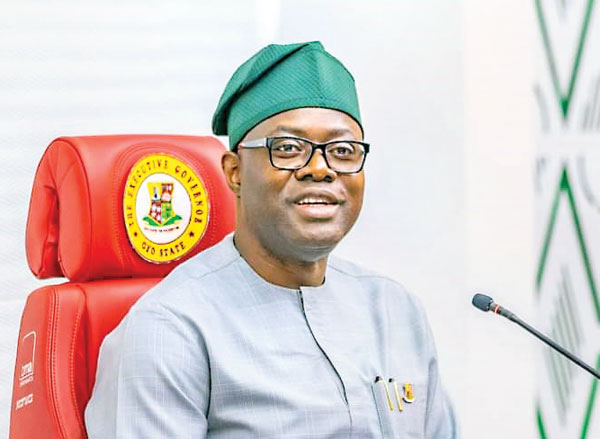Oyo Governor, Seyi Makinde, on Monday, set up two committees to critically study the July 11 Supreme Court judgment granting financial autonomy to local government areas in the country.
The two committees: Legal and Technical, have the mandate to examine the Certified True Copy (CTC) of the judgment, understand the actual orders of the Supreme Court, and look at how implementable the judgment is.
At an emergency stakeholders’ meeting held at the executive council chambers of the governor’s office, State Secretariat, Ibadan, Governor Makinde said the move became imperative because preliminary observations point to confusion, conflicts between the Supreme Court judgment and the provisions of the constitution.
According to Makinde, there was need to engage experts, and experienced persons in the local government operations to give the government insight into the consequences, challenges associated with implementing the judgment.
Noting the associated challenges of the operations of the local government to include accumulation of arrears of salaries, pensions, and gratuities of primary school teachers, local government staff among other workers, with the local government needing funds to augment, Makinde said there was need to really look at the consequences that the judgment has for the status-quo.
Also pointing to the backlog of arrears met upon assumption of office, Makinde said the state government feared that the judgment may again create a situation where the local government is unable to pay salaries, and pensions and attend to the needs of the people as expected.
Irrespective of the judgment, Makinde said the state government was responsible enough to decide its priorities and its manner of implementation without waiting for directives of the federal government.
He maintained that sharing of funds was not the main issue but government focused on how to generate more revenue to take more Nigerians out of poverty.
The meeting had in attendance representations of the legislature, executive, Nigeria Union of Pensioners (NUP), Nigeria Union of Local Government Employees (NULGE), State Universal Basic Education Board (SUBEB), Association of Local Governments of Nigeria (ALGON), Pensions Board and other officials associated with the local government system.
State Attorney General, Mr Abiodun Aikomo, and Commissioner for Local Government and Chieftaincy Matters, Mr Ademola Ojo, who also spoke with journalists after the meeting, said the committees are expected to give the state government feedback within the next six weeks.
According to the Attorney General, Governor Makinde’s resolve is driven by his desire not to allow the people of Oyo to suffer as a result of implementing the Supreme Court judgment.
He stressed that the setting up of the committees is because the judgment provided a lacuna with the constitution, particularly noting that the judgment directed that allocations be paid directly to local government areas whereas the constitution provides for the creation of the State Local Government Joint Allocation Account (JAAC).
ALSO READ THESE TOP STORIES FROM NIGERIAN TRIBUNE
